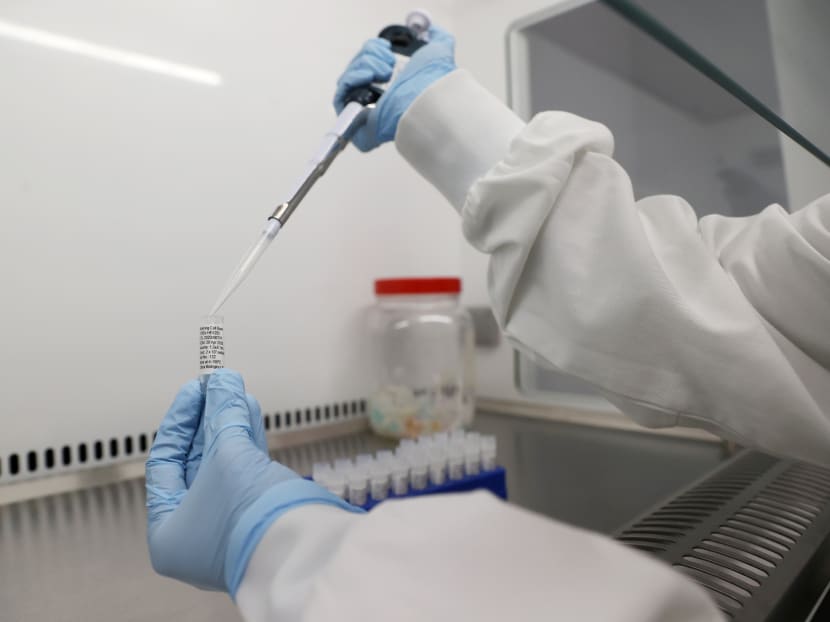S’pore researchers find weak spots in coronavirus for antibodies to target, boosting efforts to find cure
SINGAPORE — The antibodies found in recovered Covid-19 patients are able to neutralise four specific parts of the Sars-CoV-2 coronavirus, thus limiting its spread.
SINGAPORE — The antibodies found in recovered Covid-19 patients are able to neutralise four specific parts of the Sars-CoV-2 coronavirus, thus limiting its spread.
This was the discovery made by researchers and it will boost efforts to find a treatment for Covid-19 and factor significantly in the development of a vaccine.
The breakthrough, a key milestone in the global battle against the Covid-19 pandemic, was jointly announced on Friday (July 17) by the National Centre for Infectious Diseases (NCID) and the Singapore Immunology Network (Sign), a research institute established by the Agency for Science, Technology and Research.
When a person suffers from a viral infection, his body produces antibodies that try to attach themselves to parts of the virus, also known as epitopes, to try to neutralise and eliminate them.
But only some antibodies can eliminate the virus or offer protection against infection, NCID and Sign said in a joint statement. This depends on the epitopes that the antibodies are targeting.
The two organisations conducted studies and realised that antibodies found in Covid-19 patients could attach themselves to four epitopes. They are identified as S14P5, S21P2, S20P2 and N4P5.
Tests conducted on more than 100 recovering Covid-19 patients found these epitopes in those who were infected, making them good "detection markers" to identify patients who have been exposed to Sars-CoV-2.
Sign will be using these epitopes in a multi-centre collaborative study for the development of the World Health Organzation’s International Standard for Covid-19 Antibody and Reference Panel.
The findings will enable the health authorities to:
Detect the presence of Sars-CoV-2 in individuals who might have had negative results with the polymerase chain reaction test
Estimate the community’s immunity to the infection by surveying the degree to which the population carries antibodies that can neutralise these epitopes
Support the development of treatments and vaccines
Professor Leo Yee Sin, the executive director of NCID, said that the coronavirus has challenged the entire scientific world with numerous unresolved questions awaiting scientists to unravel.
“Antibodies are key to our bodies’ defence mechanisms against viruses,” she said. “We are pleased to share this internationally leading work by the local research team, which focuses on a powerful aspect of finding out how humans can generate specific antibodies targeted against Sars-CoV-2.”
Professor Lisa Ng, senior principal investigator with Sign, said that the identification of the epitopes of the virus is a “crucial” advancement in the development of treating Covid-19.
“There is also potential to use these targets against similar coronaviruses to address other viral outbreaks,” she added.










